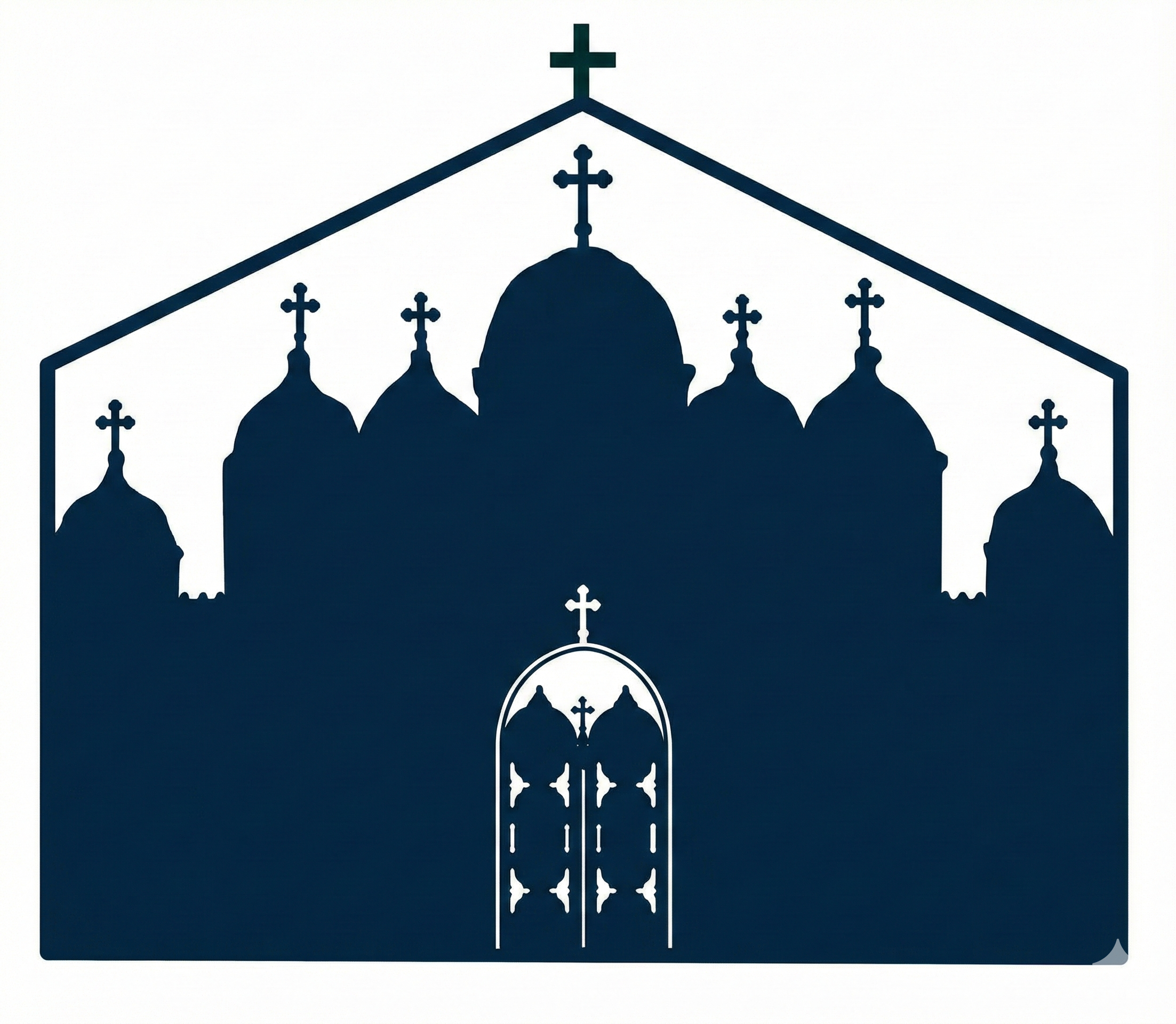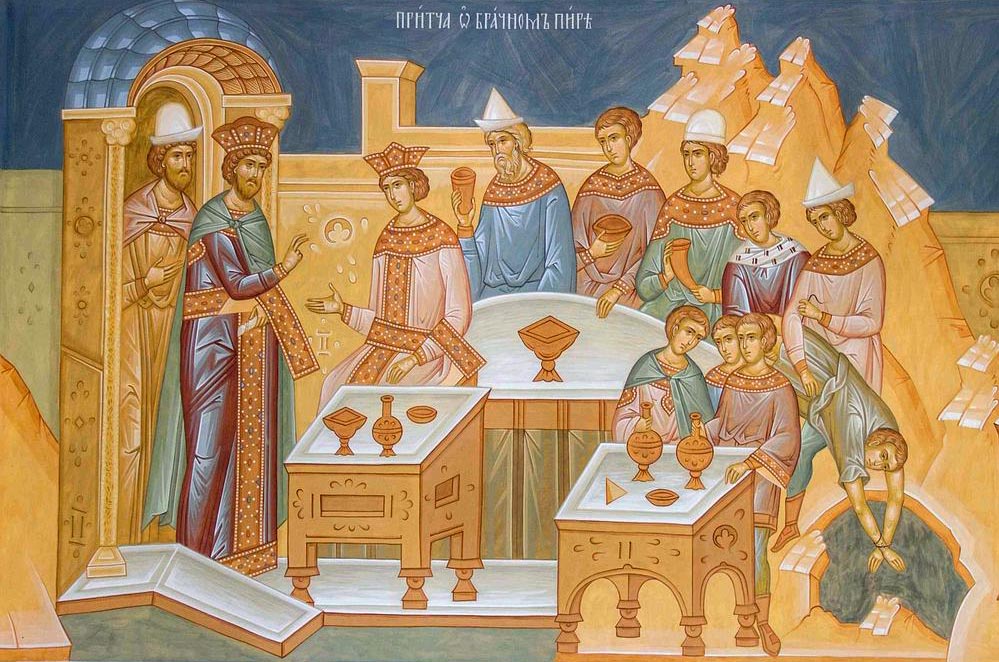Matthew 22:1-14 2024/09/29 Osaka Orthodox Church
In the name of the Father, of the Son, and of the Holy Spirit
Jesus taught people through parables. Today we will look at one of the most famous, the “Parable of the Wedding Feast.”
Many people had been invited to the prince’s wedding feast. But almost of them did not come on the day of the feast. Instead, people from all over the town were brought in randomly. When the feast was about to begin, the king found a man among them who was not wearing the formal wedding wear. He asked, “Why are you not wearing formal wedding wear?” but the man did not answer. The king became angry and ordered his servants, “Throw this man out into the utter darkness.”
What kind of person was this? He was a man who did not wear a formal wedding wear. Why didn’t he wear it?
If we rephrase it, this was “a man who would not change out of his own clothes” the truth becomes more clear.
In those days, at banquets, the host would prepare formal wear, and the guests would wear it to the banquet. Therefore, this man tried to stick to wearing “his own clothes” instead of the “formal wear” that was given to him. The king was angry at his stubbornness.
There are many people in this world who know Christianity well and even respect it. However, many of them never try to leave their own understanding of Christianity. That’s why they say things like, “Jesus’ teachings on love are great, but the monotheistic exclusivity of Christianity has always been one of the causes of wars…” And even among those who call themselves “Christians” today, there are even some who say, “I believe in the cross but not the resurrection, I believe in the forgiveness of sins but not the resurrection of the body or the Last Judgment.” Even if they keep quiet, such thoughts are hidden in the depths of their hearts, and many are content with their own version of faith. However, faith that takes the pieces of both worlds is not faith in God, in Christ, or in the Church, but faith in the person who thinks this way, a “faith” that places oneself in God’s position. If such thoughts are the result of serious inner struggle on the part of the person, I have nothing to say. I can only pray for God’s mercy. However, I want you to know that it is not a Christian, or at least an Orthodox, faith.
The Church has taught that in this parable, the “ceremonial formal garment” is likened to “contrition” and “repentance.” When we think of contrition and repentance, we tend to think of it as something like saying “I’m sorry, I’m sorry,” but it is not something that simple.
A very famous holy father from ancient times lamented on his deathbed, “Have I even began to repent?”
The first step for us as Christians to become worthy of the “feast of the kingdom of God” that will surround Christ at the end of the world is to “take off our clothes.” It is about casting away our attachment to “our own clothes” – that is, “our own experiences,” “our own thoughts,” “our own sensitivities,” and “our own faith” – and placing ourselves in the light that God shines upon us. Placing ourselves in God’s light does not mean some kind of mystical experience. It is about freeing ourselves from our stubbornness and beginning to live in the joy of the Church’s tradition, of which the Bible is one example, and especially the Eucharist that is here today. And it is about “putting on” the person called “Christ” as we love, encourage, help, and forgive one another.
This is not difficult at all. The formal wear is prepared by the host and will be given to us only if we ask for it.

